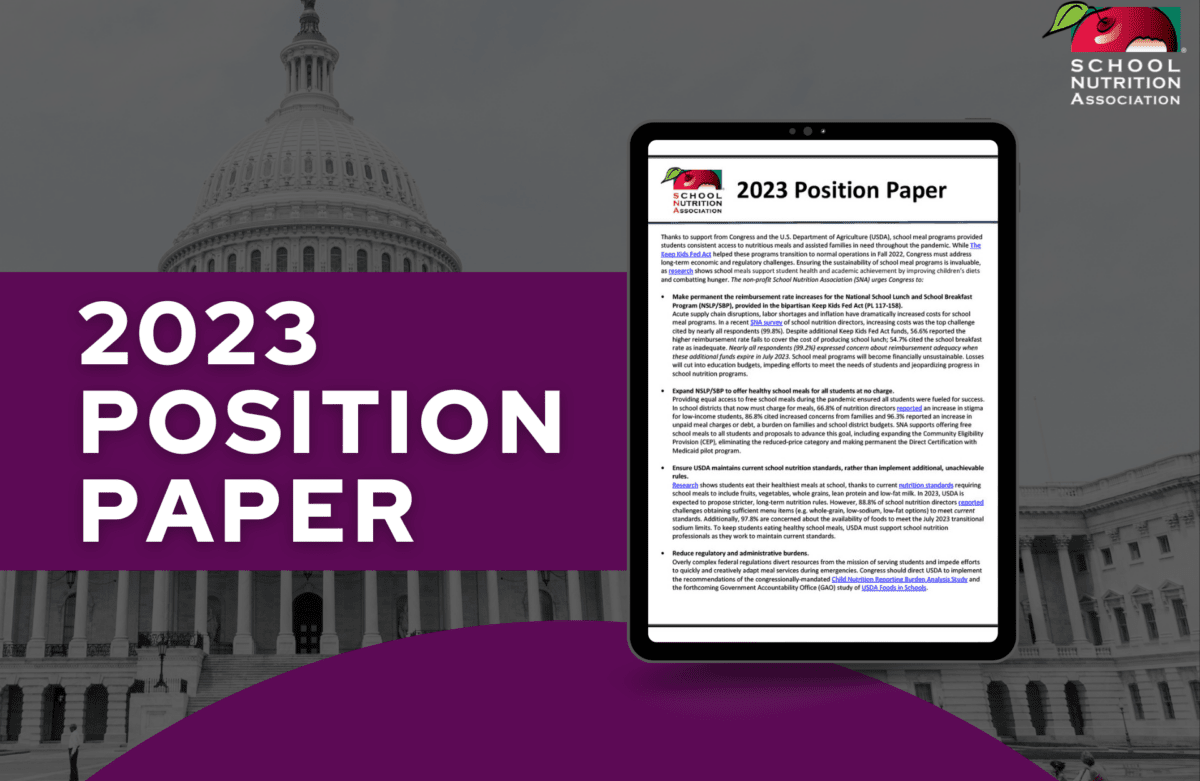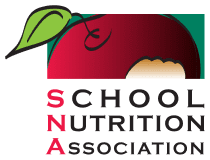Thanks to support from Congress and the U.S. Department of Agriculture (USDA), school meal programs provided students consistent access to nutritious meals and assisted families in need throughout the pandemic. While The Keep Kids Fed Act helped these programs transition to normal operations in Fall 2022, Congress must address long-term economic and regulatory challenges. Ensuring the sustainability of school meal programs is invaluable, as research shows school meals support student health and academic achievement by improving children’s diets and combatting hunger. The non-profit School Nutrition Association (SNA) urges Congress to:
- Make permanent the reimbursement rate increases for the National School Lunch and School Breakfast Program (NSLP/SBP), provided in the bipartisan Keep Kids Fed Act (PL 117-158).
Acute supply chain disruptions, labor shortages and inflation have dramatically increased costs for school meal programs. In a recent SNA survey of school nutrition directors, increasing costs was the top challenge cited by nearly all respondents (99.8%). Despite additional Keep Kids Fed Act funds, 56.6% reported the higher reimbursement rate fails to cover the cost of producing school lunch; 54.7% cited the school breakfast rate as inadequate. Nearly all respondents (99.2%) expressed concern about reimbursement adequacy when these additional funds expire in July 2023. School meal programs will become financially unsustainable. Losses will cut into education budgets, impeding efforts to meet the needs of students and jeopardizing progress in school nutrition programs. Learn more
- Expand NSLP/SBP to offer healthy school meals for all students at no charge.
Providing equal access to free school meals during the pandemic ensured all students were fueled for success. In school districts that now must charge for meals, 66.8% of nutrition directors reported an increase in stigma for low-income students, 86.8% cited increased concerns from families and 96.3% reported an increase in unpaid meal charges or debt, a burden on families and school district budgets. SNA supports offering free school meals to all students and proposals to advance this goal, including expanding the Community Eligibility Provision (CEP), eliminating the reduced-price category and making permanent the Direct Certification with Medicaid pilot program. Learn more
- Ensure USDA maintains current school nutrition standards, rather than implements additional, unachievable rules.
Research shows students eat their healthiest meals at school, thanks to current nutrition standards requiring school meals to include fruits, vegetables, whole grains, lean protein and low-fat milk. In February, USDA proposed stricter, long-term nutrition rules. However, 88.8% of school nutrition directors reported challenges obtaining sufficient menu items (e.g. whole-grain, low-sodium, low-fat options) to meet current standards. Additionally, 97.8% are concerned about the availability of foods to meet the July 2023 transitional sodium limits. To keep students eating healthy school meals, USDA must support school nutrition professionals as they work to maintain current standards. Learn more
- Reduce regulatory and administrative burdens.
Overly complex federal regulations divert resources from the mission of serving students and impede efforts to quickly and creatively adapt meal services during emergencies. Congress should direct USDA to implement the recommendations of the congressionally-mandated Child Nutrition Reporting Burden Analysis Study and the forthcoming Government Accountability Office (GAO) study of USDA Foods in Schools. Learn more

Category
Resource Type
Year Added
2023

